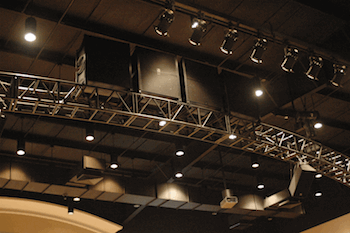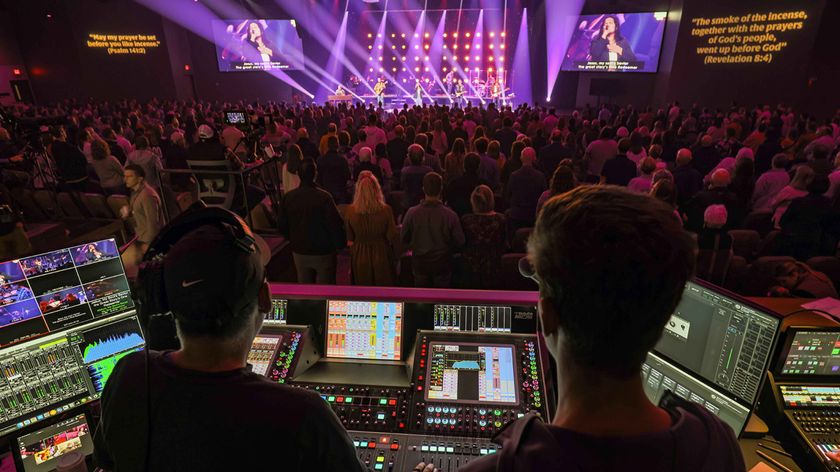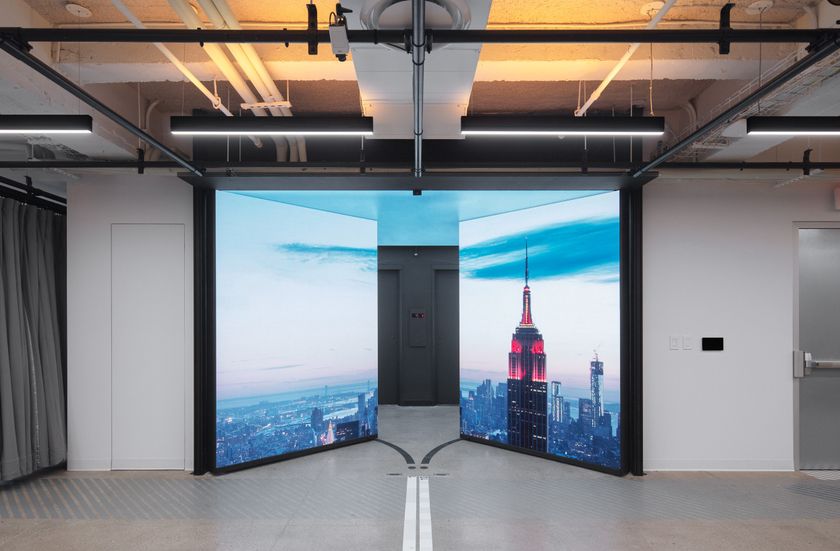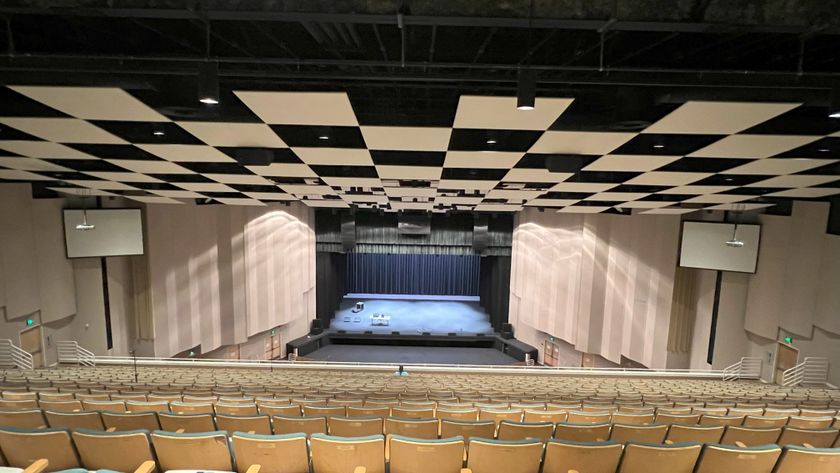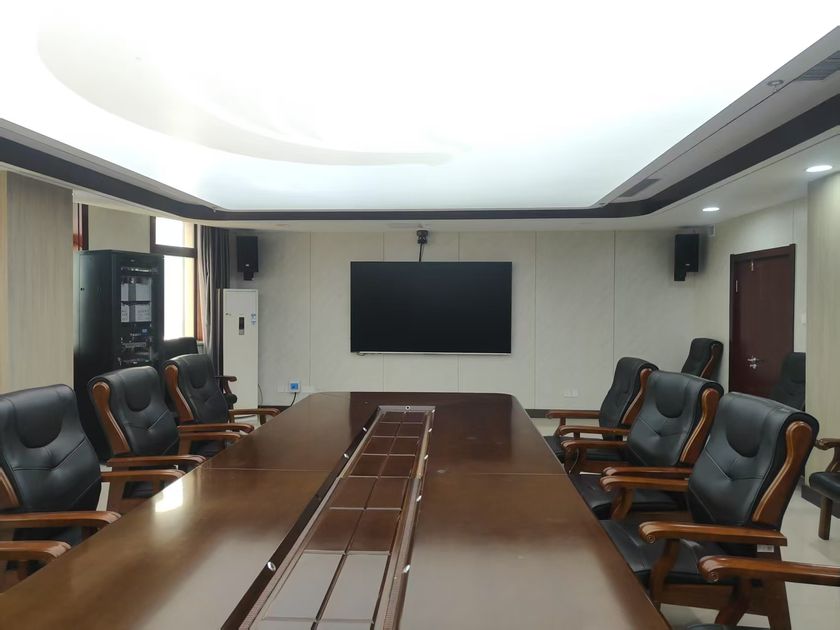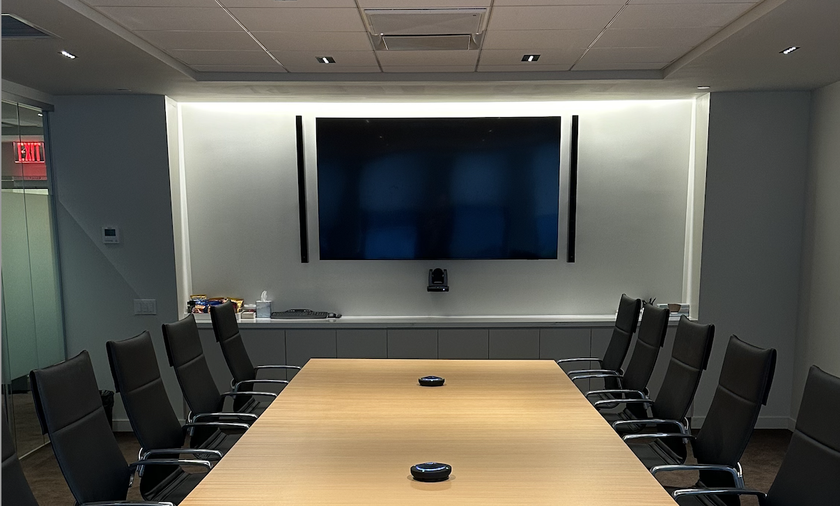Larry Habetz of Gulf Coast Sound recently recommended Electro-Voice to Word of God Ministries for the sound system in the church's newly constructed worship center in Shreveport, LA.Situated on a 143-acre site near Word of God's existing church complex, the new worship center has a fan-shaped interior with approximately 1500 padded theater-style seats. The 125-feet deep room is composed of a raised stage facing a slightly raked main floor of concrete transitioning into a carpeted area of sharply raked "stadium-style" seating toward the back of the house. The 30-feet high sidewalls are sheetrocked, but the black-painted insulation on the ceiling is exposed, which helps to mitigate overall reverberation.
- Habetz describes the church's service as Contemporary Christian. "Some parts have a lot of heavy rock influence," he said. "The church also plans on doing concerts in there, so they definitely need a rock-and-roll-capable system that gives them the ability to present a touring act without hiring an outside PA."
- By the time Gulf Coast got the call for the Word of God project, Habetz says, the sound system had already been bid by a different installer who was no longer involved. "We got the referral from our friends at Sound Productions in Dallas. We are dealers, but in this case Sound Productions was already selling the gear and they wanted us to install it."
- "When I visited the site for the first time," Habetz said, "the structure was already built, and they were starting with the finish work on the inside. I asked the pastor, James McMenis, if he was wedded to the PA that had already been bid, and he asked what I would recommend. I told him that I would choose Electro-Voice, because while good-quality product is available from a number of sources these days, nobody else offers the level of service that we get from EV."
- No EASE modeling had been done to validate the existing system design, so Habetz asked for the CAD drawings. "I told the church that I might be able to get them a bid for an EV-based system in about a week. I sent off the drawings to Stu Schatz, one of EV's in-house applications engineers, and Stu called me the very next day to tell me that the EASE model was waiting for me in my in-box. That meant that I was able to put a bid in the pastor McMenis's hands that afternoon. He was blown away. He said that we were the first contractors on the entire construction project that had been able to turn things around like that for him. That definitely made an impression on him, and helped him make his decision."
- Based on the room shape, size, and budget, the core of the system is 22 XLD281 compact three-way full-range line-array elements in two hangs of 11 each.
- "The XLDs are compact, with excellent rigging, and they sound amazing with EV's FIR filtering," Habetz said. "Using line arrays helped us keep the sound energy off of the walls. When Stu did the modeling, it turned out that XLD arrays gave us excellent coverage from front to back. No hotspots or cold spots, just an even smooth pattern across the seating area. We have each hang configured as three independent zones: top, middle, and bottom, so we can shade them as needed to account for differences between the main floor and the stadium seating areas."
- Complementing the XLDs on the low end is a set of eight XLC215 high-output dual-15-inch line-array subwoofers. "XLC is what we've built our business on," Habetz says. "We own 60 of the XLC127s and 40 of the XLC118s. We use them in multiple applications, and the ease of rigging is phenomenal. I like the 215s because they've got a nice tight punch on the low end and also a lot of output; they're very efficient."
"In the EASE model," Habetz added, "the XLC215s were designed as two arrays of four each flown off of the truss in the center of the room. But there is an elevated baptismal, almost like a second story, and if we had hung that big hunk of subwoofers as planned it would have completely killed the sightline for the baptismal. So we turned the subwoofers upside down in a four-wide, two-high configuration, connected the fly-ware to a piece of half-inch aluminum angle-iron, and bolted that to the top of the truss. That way the subs are out of sight above the truss, almost touching the ceiling."
The system was rounded out with 10 EVF-1122S two-way full-range loudspeakers. "The 1122 is a phenomenal box, a nice compact package with easy rigging. We used six of them for a delay ring. The XLDs did a great job of covering the back of the room without any help, but because of the church setting we opted to put in a delay line so that even at very low volume we were providing high-end presence and vocal intelligibility to the rear."
The remaining EVFs are used for front-fill. "Because of the location of the truss we could not bend the array enough to cover the front seats," Habetz continued. "So we have four of the 1122s on the truss pointed down onto key areas at the front, which gives us a real nice smooth even pattern. All of the EV speaker lines, from Tour X on up to X-Line, are voiced very similarly, so any time you combine different boxes it doesn't take much DSP work to make it all sound good together."
The delay ring and downfills are powered by Contractor Precision Series amplifiers, which are also used for a set of Tour X 1122FM 12-inch two-way floor monitors as well as for a 70-volt system that covers the foyer, entrances, hallways, and restrooms using EVID series ceiling, in-wall, and surface-mounted loudspeakers. A total of 24 channels are provided by one CPS4.5, two CPS8.5, and one CPS4.10, each of which is equipped with an RCM810 Remote Control Module for supervision and remote control.
Power for the mains and subwoofers, meanwhile, is provided by 13 TG5 Tour Grade amplifiers, each with an RCM26 remote control module. "The TGs deliver amazing power in a small package," Habetz says, "and they are able to run at 208 volts instead of 120 volts, which allows us to power more amps for each AC circuit."
Tying the system together is an N8000 NetMax 300 MIPS digital matrix controller. "We use the NetMax for system control, delays, matrixing, and supervision," Habetz says. "We could also use it to apply FIR filters, but with the RCM26 cards we can do that at the amps themselves."
The system also takes advantage of the RCM26's AES3 digital input. "We take the digital output from the console straight into the AES digital inputs on the NetMax," Habetz said, "and then feed the digital outs of the NetMax to the digital input of the RCM26 cards on the amps. We have found that the DA conversion on these cards is one of the best on the market, and you don't have to worry about signal degradation over your runs, because it is digital all the way to the amps. It's also cost-effective, because you can run two channels of digital audio over a single AES3 cable."
Habetz said that once the subwoofer sightline issue was resolved the entire system went in very smoothly. "EV PA flies really easily. All the rigging is on the box itself except the bars, so for an install two guys can handle the XLDs with no problems whatsoever. We built up the amp racks at our shop, so all we had to do was roll them into place, terminate the wires, and run the power."
"The system sounded phenomenal as soon as we powered it up," Habetz said. "We came back a couple of weeks later to commission it with EV senior technical support engineer George Georgallis, and we found that with the latest FIR presets we didn't have much work to do. We got it pretty much tuned in just a few hours."
